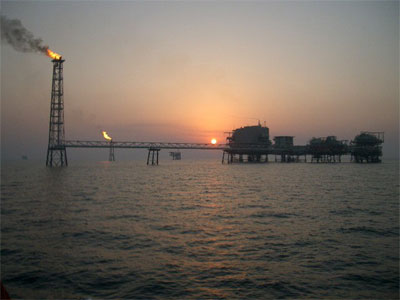|

The
Sweet Smell of Oil
by
Scott B. MacDonald
Oil
prices reached record highs in August and could keep going up. The
reason is a combination of worries about terrorist attacks on oil
infrastructure in the Middle East (including foreign experts and
pipelines in Iraq and Saudi Arabia), political tensions in Venezuela
(an upcoming referendum) and Russia (Yukos Oil), and on-again off-again
labor problems and ethnic turmoil in Nigeria. There are also
concerns about the ability of oil producers to meet upcoming winter
demand. Furthermore, foreign workers must decide whether
or not to return to Saudi Arabia after their summer holidays (we
think that many will not for personal safety reasons) and terrorists
could start to attack tankers (they have already attacked foreign
workers and pipelines).
Although oil’s price increases may peak in the short-term, the global
energy industry is in the throes of a structural transformation. On the
demand side, the longstanding U.S. role of being the dominant consumer of hydrocarbons
is being challenged by China. Since 1978, when China began its growth spurt,
the Asian country shifted from being an oil exporter to a major oil importer. Not
far behind China is India, also energy hungry. India’s real GDP growth
is expected to be around 7 percent this year. Between China and India there
are over 2 billion people, working and living in rapidly growing economies,
with expanding middle classes with automobile-oriented consumer cultures. That
means more oil demand.
At the same time as demand is on an upward swing, there is growing concern
about supply, including the aging Saudi fields and their ability to meet global
demand. Production is slumping in long-time OPEC member Indonesia, which
in 2004 became a net oil importer for the first time in 100 years. In addition,
supply from the OECD (Organization for Economic Cooperation and Development
Countries) has probably peaked. Any additional oil to be squeezed is likely
to come from Russia, Brazil (offshore) and Africa.
There is a growing possibility that we have made a structural adjustment to
a period of higher oil prices - hanging in above the $30 a barrel market, possibly
above $35 through 2004 and probably 2005. We would not rule out a spike to
$50 a barrel, but that would be entirely related to a serious disruption of
supplies from the Middle East. Barring any such disruption, oil prices
should remain under $40 a barrel.
Previous cycles of high oil prices have usually ended in global recessions
and ultimately lower oil prices that have hurt oil producers. Although
we do not see a collapse of oil prices back down to the low $20’s in
the medium term, it is in the interest of OPEC and other major oil producers
to help manage a lower, more digestible price that does not kill global economic
growth. Saudi Arabia is bringing on two new oil fields in the near future
in an effort to bring prices back into line. Despite all of the oil being
pumped, fear remains the dominant factor, with worry over sabotage and supply
ruling the market. We don’t see this stopping any time soon.
To help our readers keep abreast of of the implicastions of these important
trends, the KWR International Advisor brings you the following three articles
concerning energy developments in Africa, Russia and India.
|



